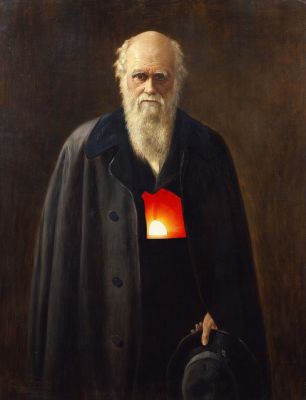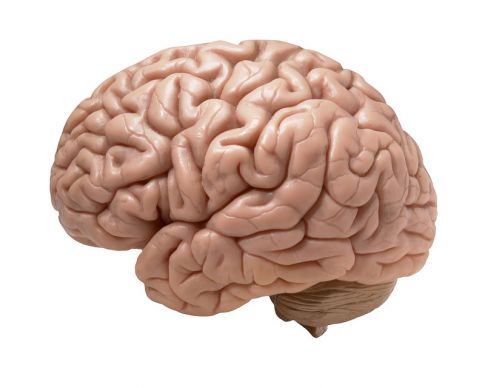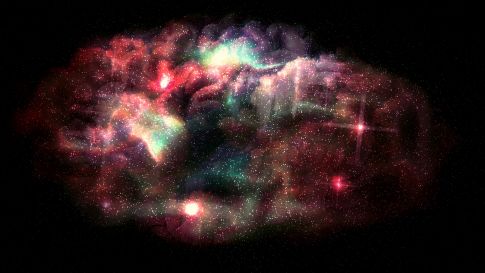
Diving into Thomas Nagel's "Mind and Cosmos" (subtitle: "Why the Materialist Neo-Darwinian Conception of Nature Is Almost Certainly False"), I experienced a vague but mounting sense of apprehension--the type one gets during the wine and cheese at a scientific conference when the person you're speaking to puts finger quotes around the word "evolution." To be perfectly blunt, I thought I had accidentally bought an anti-science polemic by a creationist.
"I would like to defend the untutored reaction of incredulity to the reductionist Neo-Darwinian account of the origin and evolution of life," Nagel tells us near the outset. "It is prima facie highly implausible that life as we know it is the result of a sequence of physical accidents together with the mechanism of natural selection."
Is it? An evolutionary biologist, at this moment, would interject a salient distinction between terms like "physical accident," as they are commonly misapplied when critiquing natural selection, and the ability of imperfect replicators to conserve those random variations across time that yield selective advantage. I don't share Nagel's view that the latter state of affairs is highly implausible; I find it both illuminating and rather wonderful. But so what? Of what concern are our respective personal intuitions about nature? It is highly implausible that the same yardstick becomes shorter when I throw it than when I hold it in my hand: but there it is.
Aware of the raised eyebrows among his target audience, Nagel adds some caveats. His is just "the opinion of a layman"--here he is too modest: he is an accomplished professor of philosophy at New York University--and his "skepticism is not based on religious belief, or belief in any definite alternative."
Well and good. Those cards played, though, he makes a full frontal assault on "psychophysical reductionism," and the reductionist-materialist worldview in general, which he sees as having become a shibboleth among the sciences; one that clearly is going fail. His critique is nothing if not sweeping: "The aim of this book is to argue that the mind-body problem is not just a local problem, having to do with the relation between mind, brain, and behavior in living animal organisms, but that it invades our understanding of the entire cosmos and its history."

I myself see nothing of value in the "intelligent design" crowd, and a good deal at which to be alarmed (to say nothing of what branch of science may be targeted next). Nagel is more tempered: while not buying I.D., he gives the movement credit for opening the way to a large-scale critique of natural selection, and from there to our current schema for understanding nature as a whole. Consciousness, cognition, value are simply not explicable--I am speaking now from Nagel's perspective--by psychophysical reductionism, and likely never will be; therefore even physical phenomena cannot ultimately be explained so long as such explanations are based on materialist, reductionist principles. No, the Cosmos as a whole shows far more evidence of something else going on . . . Tielhard De Chardin seems to be in the offing here . . . something as yet unknown . . . but something that is headed *somewhere*, as "principles of the growth of order" in nature are, "in [their] logical form, teleological rather than mechanistic."
You heard right: Biology is teleological, indeed nature is teleological, clearly assembling itself toward some grand purpose (setting aside that whole "second law of thermodynamics" thing). This is probably the moment that earned Steven Pinker's description of "Mind and Cosmos" as "the shoddy reasoning of a once-great thinker."
Religious folks of a certain bent, by contrast, may cheer--but prematurely. Nagel, an atheist, is adamant that a God-style answer won't fit the bill either: "So my speculations about an alternative to physics as a theory of everything do not invoke a transcendent being but tend toward complications to the immanent character of the natural order." (In any event, such a God would be quite unlike the Judeo-Christian version. If anything, Nagel's intuition sounds more like what Gene Rodenberry suspected: that the universe as a whole is gradually growing into a self-consciousness that will, in time, bring itself retroactively into existence.) Rather, Nagel is only intending to lay the groundwork for how a non-materialist future science might be called for in order fully to explain the presence of mind in the order of nature.
Or, if you like, the presence of nature in the order of mind.
